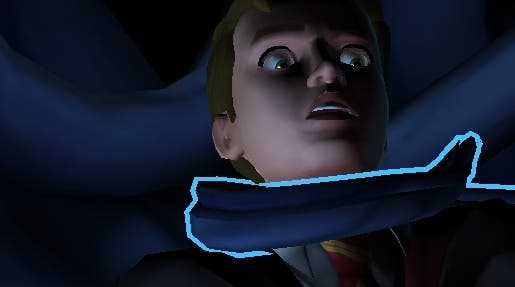Harry Potter: Hogwarts Mystery forces you to pay - or wait - to save a kid from being strangled
Riddikulus.
I've been waiting years for a new Harry Potter video game, and the premise of Hogwarts Mystery is instantly interesting - a time period so far untouched by the series' lore, a chance to reconnect with well-known characters, and, yes, the simple ability to role-play being at Hogwarts, just like Harry and his pals.
But the game's premium licence and production values all come at a cost - and that cost is forced onto the player in the form of a debilitating energy system, which slows progress to a near-impossible crawl unless you pay up.
Hogwarts Mystery is a narrative adventure, its scenarios taking the form of things like potion-making and broom lessons, conducted via simple on-screen tapping and the occasional need to trace a specific gesture. There are a few dialogue options but no ability to actually fail, as the story-led experience propels you onward through the game's central plot.
Your Hogwarts character, whoever they are, had a brother who attended the school before you but vanished upon leaving - and there are rumours he was involved with a certain You Know Who. Like the best Harry Potter stories, Hogwarts itself holds many of the answers, and there are a fresh set of hidden areas within the castle to explore.
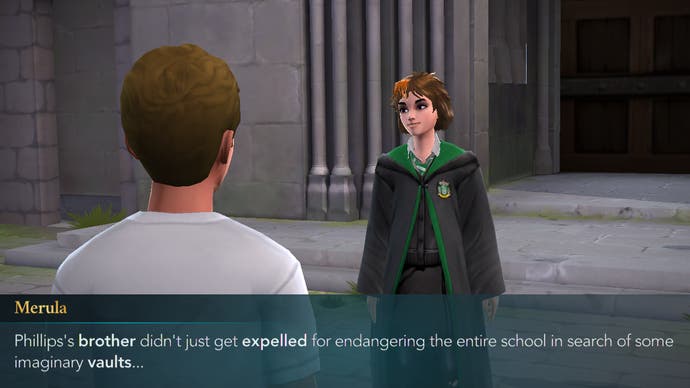
And all of that is nestled within the familiar framework of the Harry Potter novels - stories set across the length of a school year, with friends who need help, classes to pass and house points to earn. And, as usual, Snape is being a jerk.
After a few days of casual playing I've now finished most of the game's first school year (all seven school years are now in the game, although it will continue to be updated with extra scenes). I am enjoying what's there - the central mystery is interesting, the new characters are fun, and it nails the look of the film series in a sort of simplified Sims kind of way. But I'm struggling to continue - because of that tortuous energy system.
Begin a scene and you'll be told how long in real-world time you have to finish it (usually around an hour or two) and, very roughly, how long it will take to complete in terms of in-scene actions - the number of times you need to tap things to move the story on. Without paying, you'll quickly run out of the energy required to fulfil all of those actions.
You have a finite bar of energy you can hold at one time, and when this is depleted you'll need to pay up or just wait it out and keep checking back before time runs out. You regain one energy point every four minutes, and there's no way to regain energy for free doing another activity. The only challenge involved is remembering the game's clock is still ticking away while you're doing other things, so you can then return in half an hour to finish what should have been a two minute experience.
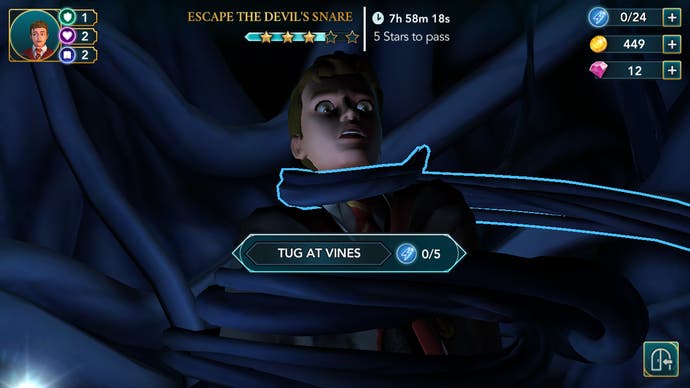
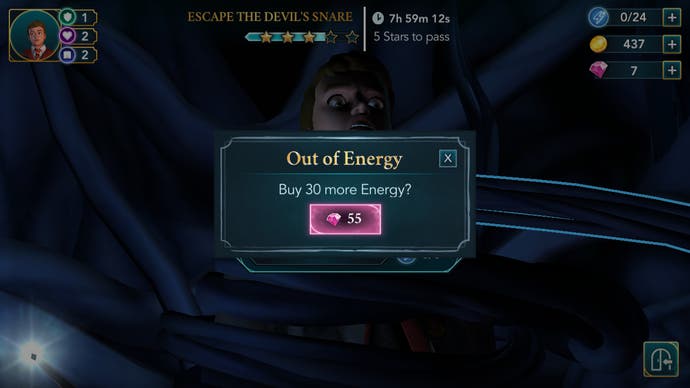
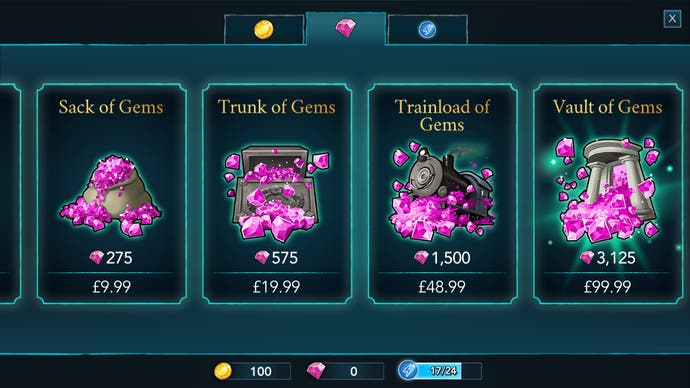
The first time the game engineers you will run out of energy is in its first action scene, where - creepily - your character is left in a life or death scenario while you wait half an hour to continue. Charitably you could say this energy system adds a certain cliffhanger-esque nature to Hogwarts Mystery - but the amount of energy needed is a completely arbitrary number, and one deliberately designed to fully deplete your energy bar. The game encourages you to make a purchase and continue immediately rather than wait and leave your avatar suffering. It is especially troubling when you consider the game's audience.
There's nothing particularly charitable about the game's microtransaction prices, either - and that's ignoring the £10 haircuts you can buy to customise your character cosmetically via the in-game store. There are also times when, outside of the in-scene energy system, the game simply requires you pay up or wait to progress to begin the next chapter. With energy a (quickly) consumable resource, continually paying for more would quickly sap your funds. That the app encourages you to pay is not surprising in itself - but the manner in which it does, and the frequency which you'd need to is frankly astonishing.
It's a shame, because the game has clearly been put together with a knowledge of the series' world and characters - but I am genuinely surprised it has launched in this state. It's a shame, because Harry Potter fans will want to uncover this untold chapter of story and hang out with people like Dumbledore, Hagrid and a school-age Tonks, and to live the fantasy of a Hogwarts student. It's a shame, because right now you just won't want to.
